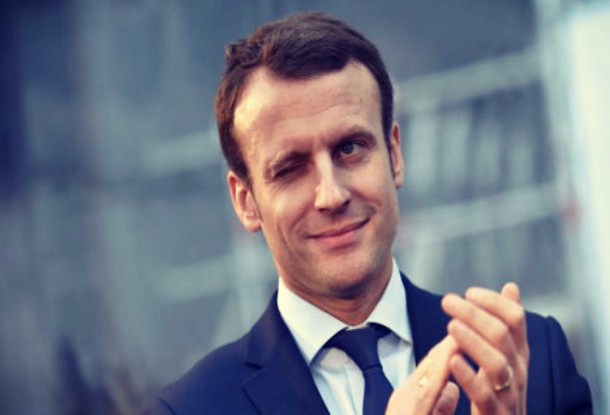21st Century Wire says…
Macaron – ‘a sweet meringue-based confection made with egg white, icing sugar, granulated sugar, almond powder or ground almond, and food colouring’
Not to be confused with Emmanuel Macron who leads Marine Le Pen with 23.9%, as compared to Le Pen’s 21.4% after the first round of French Presidential election voting which commenced on April 23rd.
If Macron is elected President, it is said that he will be the first ‘centrist’ President since 1974. The vast majority of the mainstream media and some independent press still run with this ‘centrist’ claim yet don’t mention that Macron served under current incumbent Francois Hollande, socialist. Many consider Macron to be a ‘flip flop’ with his political stance and weak with his manifesto, that it will do little help change France for the better.
Will Macron be the sweet’ petit-four’ that the French need, or be the ‘business as usual and not much change’ type as Hollande proved to be.
More on this article at The Spectator…
Aline-Florence Manent
The Spectator
Emmanuel Macron is on the verge of becoming the youngest president in French history. If he is successful in defeating his far-right opponent, Marine Le Pen, it will also be the first time since 1974 that France elects a centrist president.
But even in its early days, Macron’s presidency will face a huge test: his En Marche! movement is still very much in its infancy and it is unclear whether it will morph into a full-blown political party before June’s legislative elections. If it doesn’t, one of the main questions that voters will have is whether Macron will be able to govern in the absence of a clear parliamentary majority. Since the term of the presidency was cut from seven to five years in 2002, so that presidential and legislative elections coincide, the president’s party has usually been able to count on a majority of seats in the National Assembly to swiftly pass legislation. In Macron’s case, this is far from guaranteed.
It’s true that the speed with which the mainstream candidates of the right and left, François Fillon and Benoît Hamon, encouraged their party-bases to rally behind Macron for the final round of the presidential race shows that a consensus may be forming behind Macron. While Macron, building on his alliance with François Bayrou’s party, the MoDem, and his own movement, might succeed in being able to count on a degree of cooperation from the Republican and the Socialist parties. After joining forces against Le Pen, it is also a possibility that the Republicans and Socialist party will water down their hostility to Macron’s leadership – legislating with the presidential majority, instead of against it, as is usually the case in a bipartisan regime.
But these are big ‘ifs’ and such a situation would be highly unusual in recent French politics. Yet a crisis of the two main parties in parliament does not necessarily bring the whole regime down with it. In fact, De Gaulle, was adamant that the fate of the Republic should not be left solely in the hands of ‘these feudalists that we call political parties’. With the help of Michel Debré, he designed the Fifth Republic as a hybrid regime, combining the institutions of a parliamentary system with a powerful presidential office so that a crisis in the party system might not necessarily provoke a crisis of government.
But this isn’t to say that a Macron presidency wouldn’t mark something new in French politics. In fact, if as expected Macron wins on May 7, France’s semi-presidential system won’t be dependent on strong parties to function – a set up which undoubtedly would put the Fifth Republic as De Gaulle envisioned it to the test. Unless Macron’s En Marche! achieves, in just a few weeks what it took the Socialist Party decades to do – and what no other centrist party was able to – it is likely that he will not be able to rely on a clear majority in parliament.
It may have taken 60 years, but De Gaulle’s vision of the Fifth Republic could well be coming to a point of crisis. Whether or not it fails won’t only be down to Macron though. Instead, it will also depend in no small measure on whether, chastened by their historic failure, what remains of the Republican and Socialist parties are willing to cooperate with the centre. But if they aren’t prepared to ditch the sterile power play of alternating centre-right vs. centre-left majorities and compromise, France faces an uncertain future…
Continue this article at The Spectator
READ MORE EUROPE NEWS AT: 21st Century Wire EUROPE Files
SUPPORT OUR WORK BY SUBSCRIBING & BECOMING A MEMBER @21WIRE.TV
















